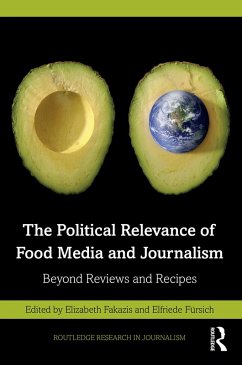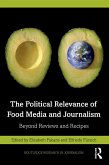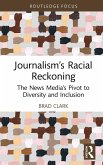Dieser Download kann aus rechtlichen Gründen nur mit Rechnungsadresse in A, B, BG, CY, CZ, D, DK, EW, E, FIN, F, GR, HR, H, IRL, I, LT, L, LR, M, NL, PL, P, R, S, SLO, SK ausgeliefert werden.
Tania Lewis, author of 'Digital Food: From Paddock to Platform' and Co-Director of the Digital Ethnography Research Centre at RMIT University, Melbourne, Australia
"Can lifestyle journalism ever contribute to civic responsibility? Is contemporary food media a symptom of the narcissism of high consumption and self-serving entrepreneurialism? Are Instagram and Twitter new sites of democratization of public culture or do they mark the death of common debate and discussion? Posing the most important questions that haunt food media today, this volume, carefully collected and closely argued, delivers bracing critique and surprising commentary on the viability of a journalism of everyday life, while alerting us to the symptoms of the fractious death of a common public culture."
Krishnendu Ray, author of 'The Ethnic Restaurateur," Food Studies, New York University, USA
"Food cultures and practices can be political, but often in covert ways. Thoughtful and impassioned journalism uncovers these politics, bringing issues such as food insecurity, environmental degradation, racism, classism, sexism, the cult of celebrity, and nationalism to the attention of the world. This wonderful book provides many examples of how food journalism and digital media content creators can challenge inequities, create controversy, and call for change."
Deborah Lupton, Vitalities Lab and Australian Research Centre for Automated Decision-Making and Society, University of New South Wales (UNSW) Sydney, Australia
"Showcasing work from leading and emerging scholars and bringing together international and interdisciplinary perspectives, this volume offers a rich exploration into the intersections of food, media, and politics. A welcome, and timely, addition to the growing field of food communication, this project centers on the political relevance of food media and journalism and investigates their influence on personal and civic lives. A must-read for students and scholars in the fields of communication, media, and journalism, and anyone interested in food communication and politics."
Alla Tovares, co-editor of 'Identity and Ideology in Digital Food Discourse,' Howard University, USA









